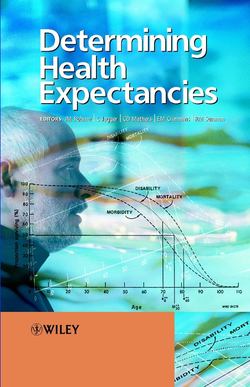Описание книги
Health expectancies were developed to address the important question of whether or not we are exchanging longer life for poorer health – replacing quality by quantity. Health expectancies extend the concept of life expectancy to morbidity and disability by providing a means of dividing life expectancy into life spent in various states of good and bad health. Being independent of the size of populations and of their age structure, health expectancies thus allow direct comparison of the different groups that constitute populations: sexes, socio-professional categories, regions. This book brings together for the first time, the major works of REVES* over the past ten years. As well as providing comparisons of the health of many of the world's countries, the book includes sections on the concepts behind health expectancies and the demographic transition, the relevance of health expectancies to health policy and the different methods of calculating health expectancies. *REVES is an international organisation of researchers, clinicians and health planners addressing these issues as well as developing and recommending methods of calculation and furthering the use of health expectancy as a tool for health planning. * State-of-the-art coverage of this important health indicator * Heavily cross referenced to give the book structure and coherence * Editors are pioneers in the field of health expectancy
